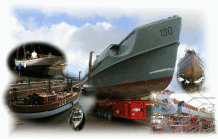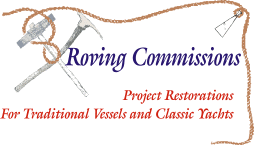|
|
|
Some Traditional Boat building & Shipwrights Tools
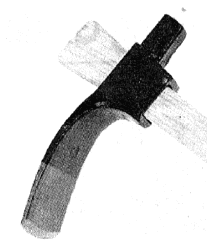 |
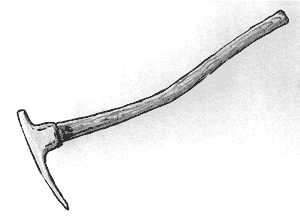 |
ADZEUSE: Shaping timber. Keels, Stems Frames etc. |
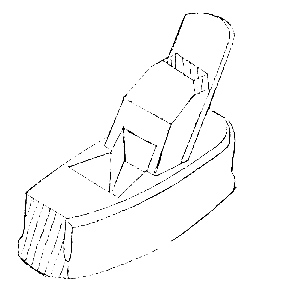 |
BOLLOW
PLANE
The plane sole has a convex curve on two planes. USE: Hollowing the inside face of a hull plank, at the turn of the bilge, so that it lies snug against a timber or frame. |
|
 |
COMPASS
PLANE
USE: For planing concave and convex curves by adjusting the sole to suit the job. Although not exclusive to boat building it is nonetheless useful for shaping the many curved components that go into building a boat. |
|
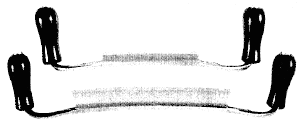 |
DRAWKNIVES
USE: Quick removal of waste when shaping spars, oars etc. |
|
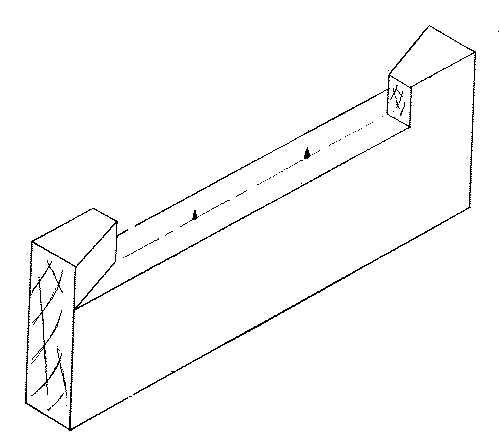 |
SPAR GAUGE
USE: For initial setting out of spars. Marking up a squared length of timber prior to making it "eight square" (octagonal). The gaps between the shoulders and the pins uses a ratio of 7:10:7. |
|
 |
SHIPWRIGHT'S
BAR
USE: For drawing iron dumps etc. The bar has an extra wide end, spreading the load to reduce any damage. The steel is also sprung to provide more power moment when dealing with stubborn fastenings. |
|

|
RAKING
IRON
USE: For removing old caulking material from plank seams. |
|
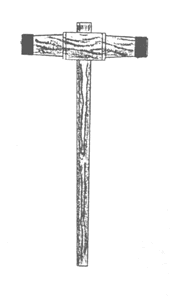 |
CAULKING
MAUL (MALLET)
Lignum vitae head, with iron rings to stop splitting, on seasoned ash handle. USE: For putting in new or hardening existing caulking in plank seams. Used in conjunction with caulking irons. |
|
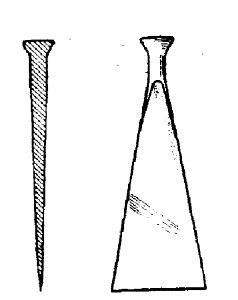 |
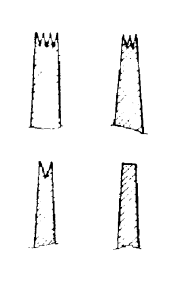 |
CAULKING
IRONS
USE: For knocking caulking material, oakum or cotton, into planking seams. Caulking irons come in a variety of sizes and profiles. A full set could be comprised of 25 or more different irons, although for most purposes only 5 or 6 may be required. |
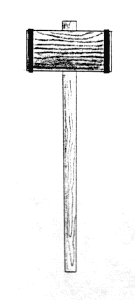 |
BEETLE
USE: Used for heavy duty deck caulking on large vessels. The beetle is used in conjunction with the horsing and horse irons. |
|
 |
HORSE IRON
USE: Specially shaped deck caulking iron, used to caulk under sheet horses and other obstacles. One man would locate and hold the horse iron while another would wield the beetle. |
|
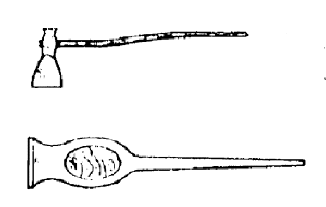 |
HORSING
IRON
USE: For hardening oakum into deck seams. As above, one man drives the horsing iron while another wields the beetle. |
|
 |
ROVING
DOLLY
USE: For supporting copper boat nails when roving or riveting planks to timbers (ribs). The dolly boy holds the dolly against the nail head while the man inside the boat forms the rivet over the copper rove (domed washer). |
|
 |
DINGHY
DOLLY
USE: A single handed roving tool, allowing one man to rove-up a dinghy. A rove punch hole is incorporated into the end which supports the nail while it is being driven through the plank, timber and copper rove. |
|
| For Shipwright Tools and Supplies | ||
